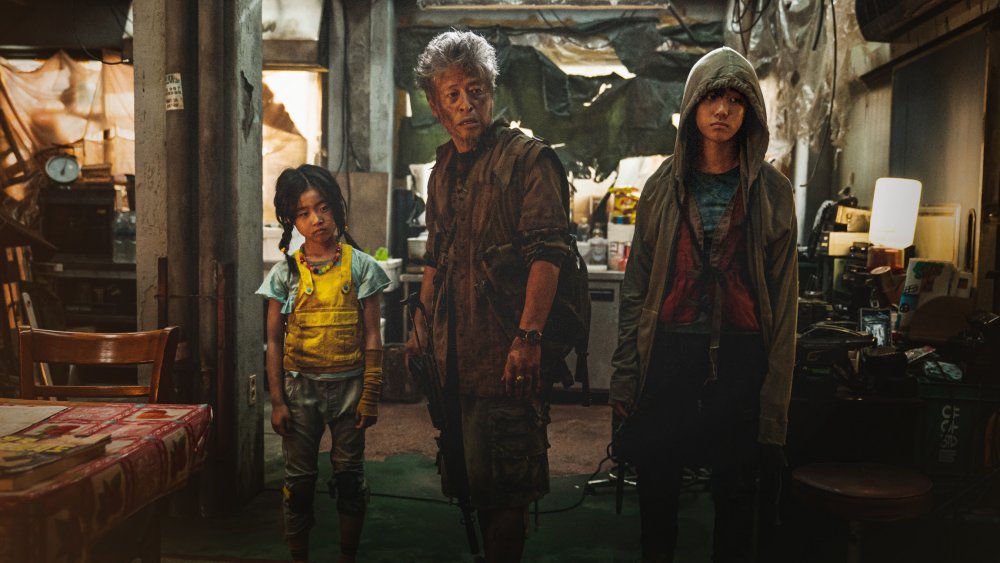The Real Reason Peninsula Is So Different Than Train To Busan - Exclusive
Yeon Sang-ho's new movie Peninsula takes four years after the events of his smash hit Train to Busan, the South Korean action-horror that blew everyone away when it debuted in 2016. In the flick, a zombie horde as taken over South Korea, and the country is under quarantine. Travel to and from the nation is expressly forbidden, but some still sneak there to search for high-value items left behind during evacuation. Peninsula (also marketed as Train to Busan Presents: Peninsula) tells the story of people who lost everything, now recruited to find something in their former home country — only to find it overrun by gangs and hangers-on still trying to survive.
If Peninsula doesn't feel like a traditional sequel, that means Yeon succeeded at his goal. "I threw away the notion of creating a sequel to Train to Busan," Yeon told Looper through a translator in an exclusive interview, "and told myself I was creating a completely new movie."
Peninsula is far more an action-adventure story than its horror predecessor, featuring an entirely new cast and a more stylized aesthetic.
Yeon was inspired in part by a surprising demographic watching his movies. He said that after Train to Busan's release, "many of my friends told me their children enjoyed watching the movie." This is an audience he never expected, especially after having also created his "more intense animation movies" like Seoul Station, The King of Pigs, and The Fake. As such, he had a specific goal in mind with Peninsula: "I wanted to create a movie that could be enjoyed by the entire family."
Korean, English, and the Western market
The success of both Yeon's Train to Busan and Oscar-winning director Bong Joon-ho's Parasite has clued a lot of Western audiences into Korean cinema. "There does appear to be much interest from the West," Yeon told Looper. "Even looking at the number of Netflix Korean content produced in Korea, I definitely feel that the international response to Korean dramas and movies has changed." As such, it's fair to wonder whether South Korean movies have started catering to global audiences.
There's a fair amount of English dialogue in Peninsula, as well as references Western audiences would understand. This includes the film's prologue, which sees a talk show guest explain the outbreak from the first movie and the aftermath. Don't mistake this for an attempt to pander to international crowds, though. As Yeon explained, "Based on the context of the movie, it was a natural inclusion. If there were different codes that could be naturally understood by the Western world, then I consider that to be fortuitous coincidence."
No matter where you live, Yeon hopes you enjoy the movie. More than anything, he wants Peninsula to be a source of entertainment. Also, if it's safe, he hopes you can see it on a big screen: "I hope when you finish the movie, you will continue to talk about it after leaving the theater."
Train to Busan Presents: Peninsula was released in South Korea on July 15 and debuts in the United States today, August 21.

